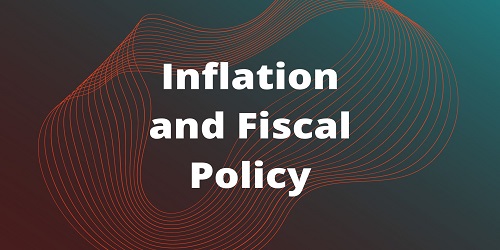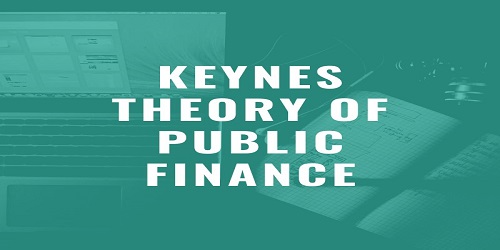Inflation and Fiscal Policy:
Inflation is one of the important problems of developing countries since under-developed countries make a heavy investment in the development of their economies. Thus, Prof. Nurkse observes that inflationary pressures are inherent in the process of investment but the way to stop them is not to stop investment. They can be controlled by various other ways to which the chief is the powerful method of fiscal policy.”
In the process of economic growth general price level has the tendency to rise mainly because of the expanding public expenditure. Aggregate demand as a result of a rise in the income of the people exceeds the aggregate supply. Capital goods as well as consumer goods fail to keep pace with the rising incomes. An inflationary gap is always maintained and prices have a general tendency to rise. Rising prices lead to a rise in demand for more wages. The cost of production is increased. A cost-price spiral is set up. However, in a developing economy, a mild dose of inflation is considered as unavoidable and desirable to stimulate production. Here, the role of fiscal policy is to check the rising prices so that mild inflation may not be converted into galloping inflation.
Fiscal policy, under inflationary conditions, involves three things: Cut in public expenditure, raising the level of taxation, and incurring public debt.
But, a reduction in public expenditure may not be possible in a developing economy, since it is committed to undertaking developmental projects and social welfare measures such as health, housing, education, etc., for the weaker sections of the society. However, fiscal policy should take measures to make economical use of the available resources.
However, it has been observed that various economic devices do not prove very effective in controlling inflation. Hence, it has to be supplemented from the taxation side. A rise in existing rates of taxation and the imposition of new taxes will decrease disposable purchasing power and have an anti-inflationary impact. Thus, budgetary gaps may be filed by additional taxation. But, taxation has a very limited scope in under-developed countries, since heavy direct taxes such as income tax, etc., can not be imposed because of the low levels of incomes of the people and indirect taxes are regressive in nature. Besides, heavy taxation may hamper production. Hence, it is concluded that this device should be used very skilfully to cover budgetary deficits and curb inflationary pressures.
Public borrowing plays a crucial role as an anti-inflationary measure as well as a source of development finance. If budget deficits of the developing economies are covered through borrowing from the public and firms, it will act as an anti-inflationary measure in these economies, when a large amount of funds are borrowed by the government, it will decrease disposable income in hands of the public and consequently, people are forced to curtail their consumption. This may lead to a reduction in demand for goods and services and lowering down of prices.
However, it has been argued that public borrowing has one very great limitation and that is, it places the burden of repayment of interest and capital upon the government and the taxpayers. Here, it has been argued that this burden may not be felt by the government and the taxpayers. If the funds borrowed are invested in development projects and the debt servicing charges, i.e., interest charges are paid out of the revenue receipts.









Comments (No)